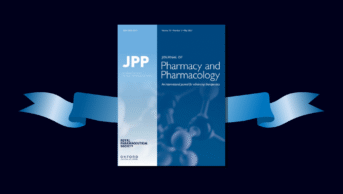
Shutterstock.com
The European Medicines Agency (EMA) has amended its policy on handling declarations of interest to ensure pharmaceutical experts are not unduly excluded from EMA activities due to their links with industry.
The policy requires experts to declare any current or past interests in the pharmaceutical industry so that their involvement in EMA activities, such as scientific committees and guideline development groups, can be restricted accordingly.
The latest revisions have increased the range of interests that need to be declared. However, in general, declaration is only required for three years after an interest ceases to exist rather than five years, and the restrictions that are imposed have been adjusted.
According to the EMA, the changes reflect a more balanced approach to handling conflicts of interest.
“The priority of the EMA is to ensure that the integrity of our scientific assessments of medicines is not compromised by private interests in the pharmaceutical industry,” explains Noel Wathion, EMA chief policy adviser. “But over recent years we also have recognised that an overly-rigid approach may limit the availability of expertise needed to ensure the robust scientific assessment of medicines.”
The greatest restrictions on involvement in EMA activities arise from direct industry interests, which the policy now divides into three categories, each associated with a different level of restriction.
Category one is for individuals who have been employed, even part-time or on an unpaid basis, in a lead role in a pharmaceutical company. This results in lifetime non-involvement in certain EMA activities involving that company’s medicinal products.
The second category is for those with financial interests in a pharmaceutical company, or who have interests related to close family members. In these cases, full involvement in EMA activities is permitted as soon as the interest ends.
Category three is reserved for other declared interests, such as consultancy or strategic advisory work for a pharmaceutical company. These interests are considered to end after a three-year “cooling-off period”, with different restrictions in place before then depending on the type of EMA activity.
Indirect interests in the pharmaceutical industry, such as involvement in industry-sponsored research, will still have to be declared and give rise to restrictions, such as being replaced in working-party discussions about a particular product or rival product.
Attendances at courses and conferences that are funded by the pharmaceutical industry do not need to be declared, unless payments are received that go beyond the reimbursement of reasonable expenses. Such paid attendances are deemed “incompatible with involvement in EMA activities”.
The updated policy defines a pharmaceutical company more widely than before to include companies to which research, development, manufacturing, marketing and product maintenance activities are outsourced.
What constitutes a financial interest in a pharmaceutical company has also been expanded to cover a greater range of investments and intellectual property rights, as well as personal grants or funding from a pharmaceutical company, such as sponsorships and fellowships.
Experts involved in EMA activities will need to submit revised declarations of interest by 30 January 2015, when the updated policy will come into effect.


